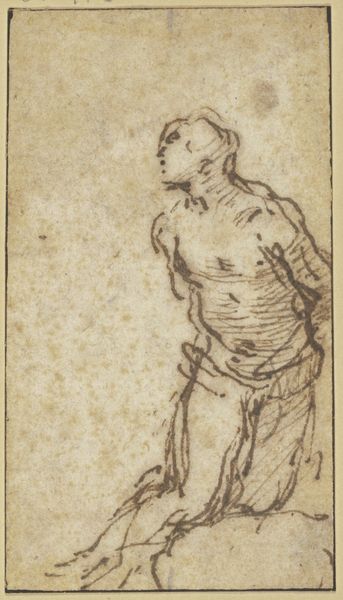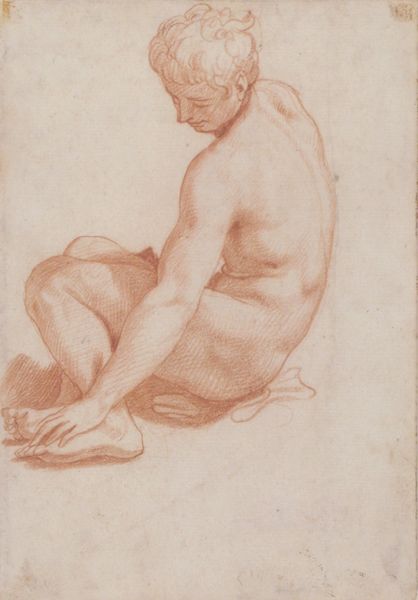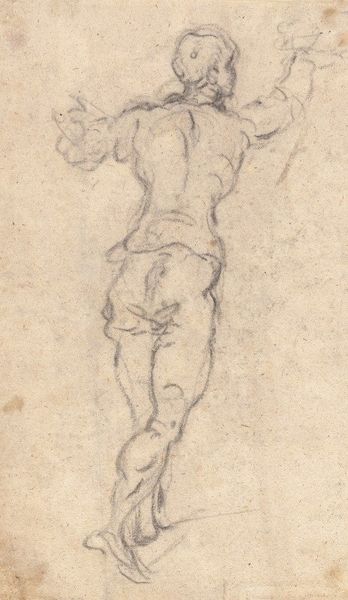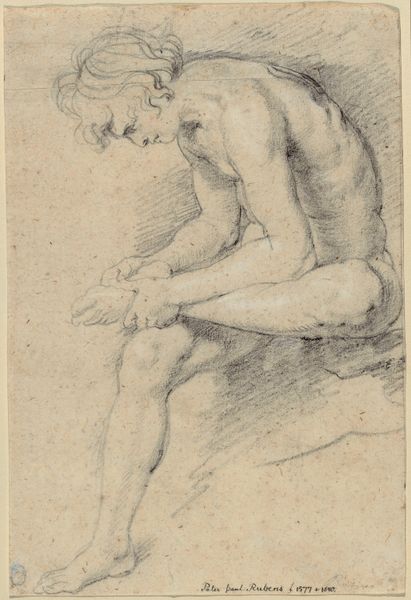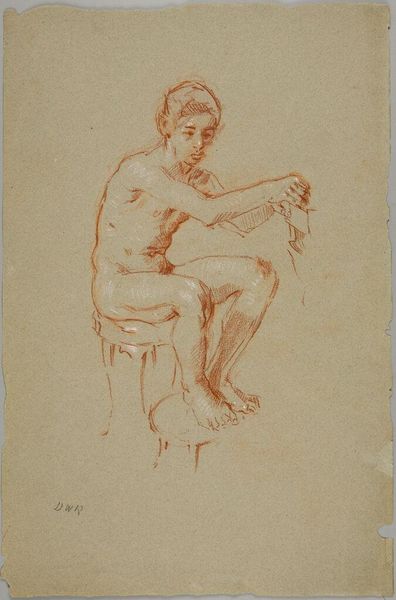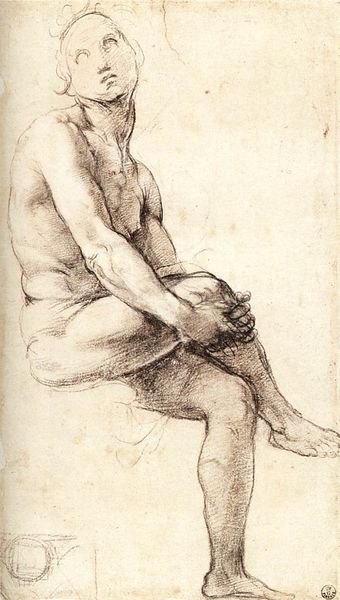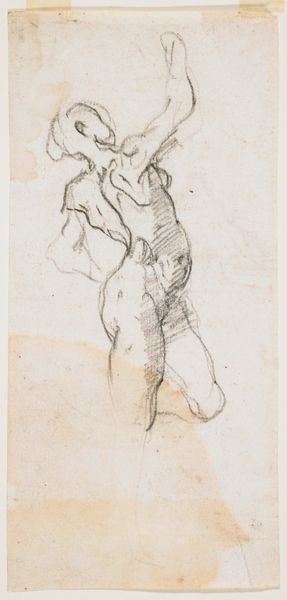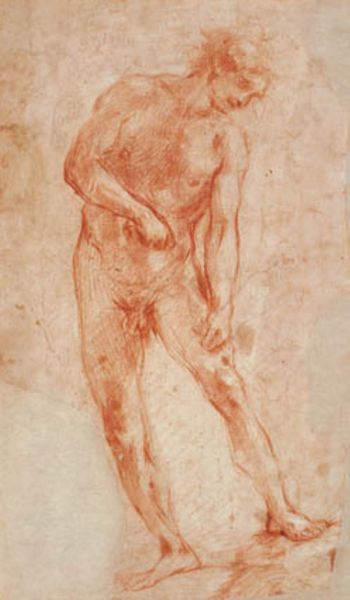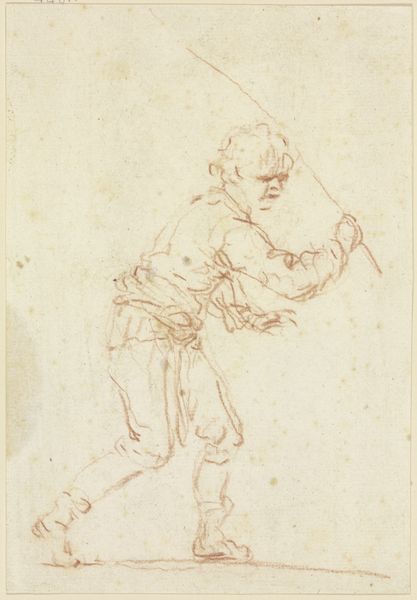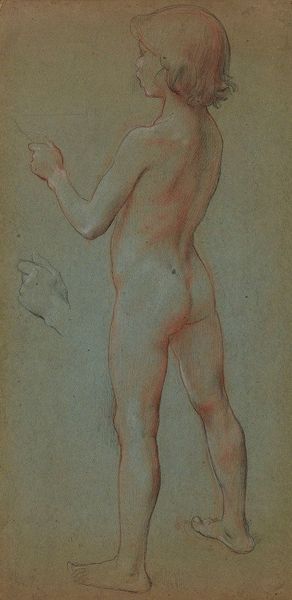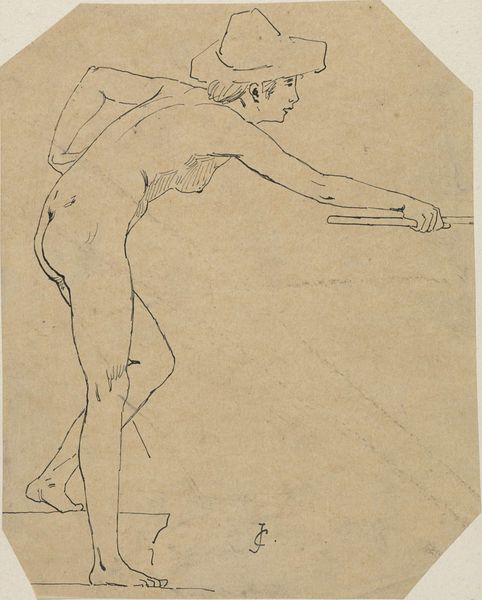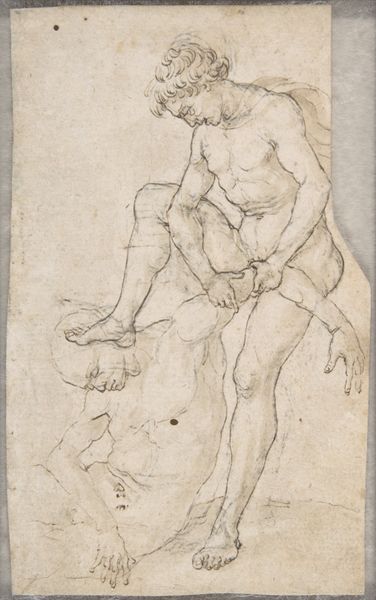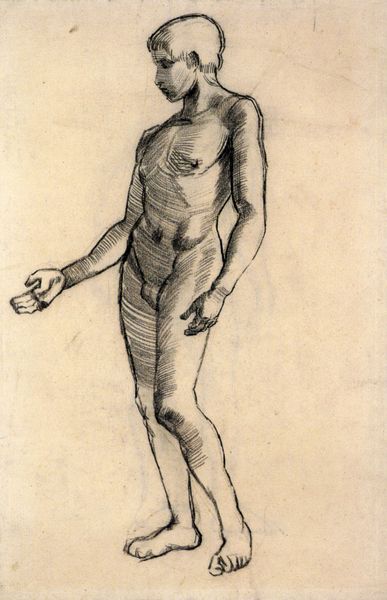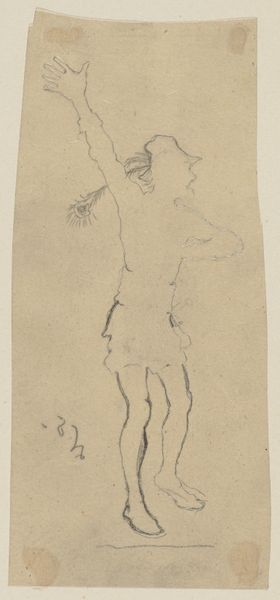
drawing, pencil, charcoal, pastel
#
portrait
#
drawing
#
impressionism
#
charcoal drawing
#
figuration
#
coloured pencil
#
pencil
#
charcoal
#
pastel
Copyright: Public domain
Vincent van Gogh made this drawing, "Seated Woman," using pencil on paper during his time in the Netherlands. The sketch is stark, almost brutal, in its rendering of the female figure. Van Gogh's early work often focused on the lives of peasants and the working class, reflecting his social consciousness and a desire to depict the realities of life outside the bourgeois circles typically represented in art. During his time in the Netherlands, the art world was dominated by the Hague School, which focused on realistic depictions of rural life, but Van Gogh’s work took on a different more human dimension. The figure’s anonymity raises questions about representation and the politics of imagery. Is she a specific person or a composite representation of working-class women? How does the drawing either challenge or reinforce prevailing attitudes toward women and the working class? Unlocking the full story of this artwork requires digging into archives, letters, and social histories. The meaning of this drawing is embedded in the social and institutional context of its creation.
Comments
No comments
Be the first to comment and join the conversation on the ultimate creative platform.
